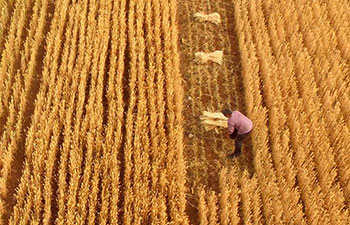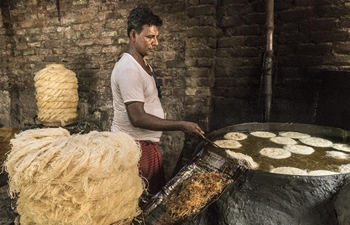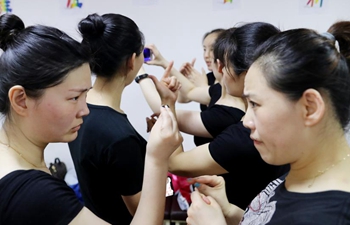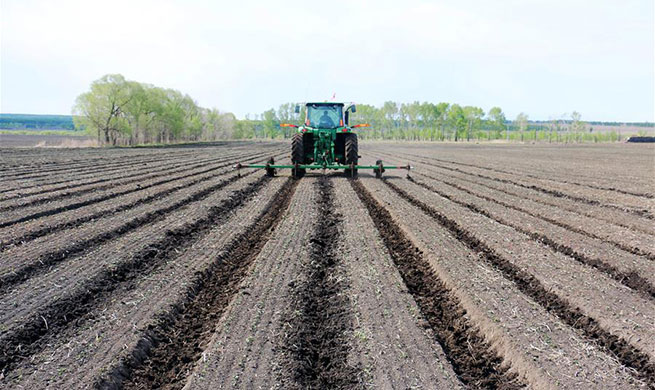CHICAGO, May 27 (Xinhua) -- Even if children grow up to overcome childhood adversity, the trauma they experience in early life causes them to be at greater risk for tooth loss, according to a study posted on the website of the University of Michigan (UM).
UM researchers drew data from the 2012 Health and Retirement Study, a nationally representative longitudinal study of older adults and their spouses in the United States. The study includes a core survey collected every two years and a supplemental survey every off year. In 2015, the supplemental survey asked detailed information about childhood family history.
Using this data, the researchers investigated three models of life course research: the sensitive period, defined as the time in a person's life during which events have the most impact on his or her development; the accumulation model, which examines the effect of the accumulation of events over the life course; and the social mobility model, which examines the change in a person's socioeconomic status during that person's life.
They discovered that more than 13 percent of adults over 50 had lost all of their permanent teeth. Nearly 30 percent of respondents experienced financial hardship, or had lost their parents or experienced a parental divorce by age 16. Ten percent of the respondents had experienced physical abuse and 18 percent smoked during childhood. Nearly half held a high school diploma or less and 20 percent of respondents had lived in poverty at least once since age 51.
After controlling for adult socioeconomic status, diabetes and lung disease, the researchers found the long-term impact of childhood trauma and abuse on total tooth loss. They also found that older adults are at higher risk of total tooth loss if they have consistently experienced adverse events throughout life.
The researchers suspect adverse events could impact tooth loss through socio-behavioral pathways. For example, abused children may be more likely to engage in health behaviors such as binge drinking or excessive consumption of sugar or nicotine use, which can contribute to tooth loss.
Stress can also impact inhibitory control of the brain, which may lead to nicotine dependence. Childhood trauma may have a negative effect on learning and achievement, and people with low educational attainment may be less likely to hold jobs that provide dental insurance.
"It's really sad to say that adversity breeds adversity, but it really seems that dental health is rooted in adverse experiences you encounter over the life course, particularly in childhood," said Haena Lee, a postdoctoral researcher at the UM Institute for Social Research.
"The significant effects of these adverse experiences during childhood on oral health are persistent over and above diabetes and lung disease, which are known to be correlates of poor oral health," Lee said.
The study has been published in Community Dentistry and Oral Epidemiology.













